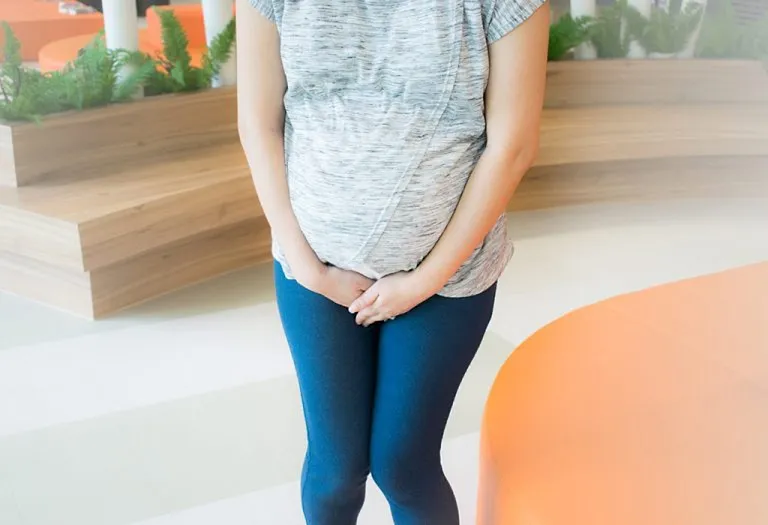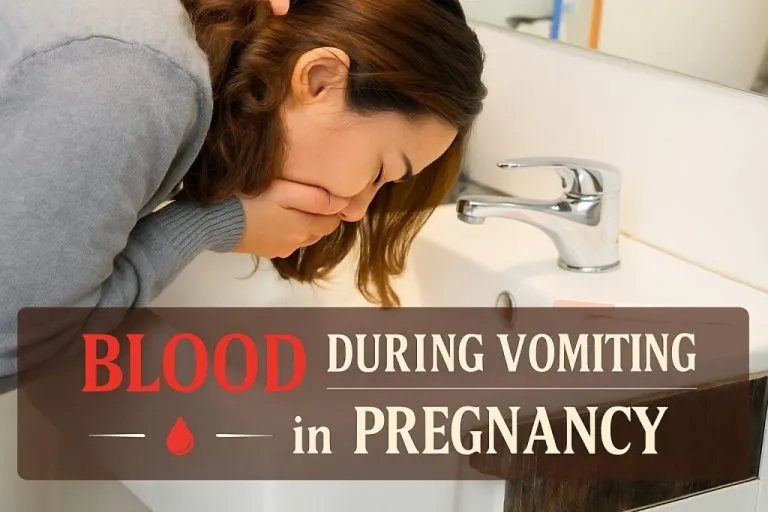Can You Take a Bath During Pregnancy? Benefits and Things to Avoid
Safe and relaxing bath tips during pregnancy to support comfort hygiene and wellbeing for mothers to be at every stage very safely

- Is It Safe To Take a Bath While Pregnant?
- Benefits of Taking a Bath When Pregnant
- How to Take a Bath Safely in Different Stages of Pregnancy?
- Things to Avoid While Bathing in Pregnancy
- FAQs
Bathing is one of the most effective ways of maintaining full-body hygiene. However, if you like soaking in long bathing sessions or enjoy occasional hot water baths, pregnancy may evoke certain concerns, and you may want to know whether your usual bathing practices are safe for your baby or if you need to make some changes. Bath and pregnancy have a delicate relationship where you don’t want to jeopardise your health and your little sunshine’s safety. This post talks about baths during pregnancy and various other aspects that you should keep in mind while bathing. So, here’s to a happy bathing experience with more knowledge and the highly recommended dos and don’ts of having a bath while pregnant!
Is It Safe To Take a Bath While Pregnant?
Bathing is not only calming and relaxing during pregnancy, but it is also a great way of soothing tired muscles. Bath for a pregnant woman is healthy as well as safe. However, it comes with some limitations. Therefore, there is no harm in taking regular baths during pregnancy and unless you take a bath with hot water. Soaking in hot water or taking hot water baths tends to increase your body temperature, which can lead to several complications for you and your baby. In the same way, steam baths, sauna baths, hot tub baths, and jacuzzis should be avoided during pregnancy (1).
Benefits of Taking a Bath When Pregnant
When taking a bath, it is essential to follow the thumb rule of not too hot and not too long. If you stick to this, you’ll enjoy having a bath during pregnancy without any risk. Here are some benefits of having baths during pregnancy:
- Relieves stress
- Eases muscle pain
- Improves sleep quality
- Reduces swelling in the arms and legs
- Helps with varicose veins
- Prevents the chances of premature contractions
- Eases haemorrhoid pain
- Increases amniotic fluid content
How to Take a Bath Safely in Different Stages of Pregnancy?
Taking a bath during pregnancy is indeed safe. However, make sure the temperature of the water is not too high, as high water temperature may drop the blood pressure, cause weakness or dizziness and even cause congenital disabilities in babies. Lower blood pressure may lead to abortions and miscarriages during the first trimester. If you are planning to take several baths during early pregnancy, and it is one of your favourite activities, ensure the temperature of the water isn’t above 32°C (2). Here are some safe ways how to take a bath during pregnancy or precautions to be taken during different stages of pregnancy.
1. First Trimester
The first trimester is a very crucial time for your baby because, at this stage, your baby’s organs start developing, and overheating of the body because of a hot bath in the first trimester may lead to severe complications or congenital disabilities. The following are safe ways of bathing during the first trimester:
- Take a tepid or warm water bath in early pregnancy
- Make sure you do not soak in the bathtub for longer durations
- Use organic or chemical-free bathing products
- The temperature of the water should NOT be more than 102 degrees
2. Second Trimester
Your pregnancy is more settled during this stage, and your growing baby bump can take a toll on your balance. Bathing can be very soothing and relaxing. However, make sure you follow these rules.
- You can take regular baths until or unless your doctor advises against it.
- Make sure you test the temperature of the water before soaking in it.
- Limit your shower time, and do not soak in water for a longer duration. Taking longer showers may increase the risk of vaginal infections (3).
- To relieve any leg pain, you may soak your legs in hot water instead of soaking the entire body.
3. Third Trimester
By this trimester, you get closer to labour and delivery. Your body may be aching or experiencing pain at this juncture. Bathing is a great of rejuvenating and relaxing. Take the following points into consideration while bathing during the third trimester of pregnancy.
- Relax and indulge in a warm water bath.
- At any given point, if you feel uncomfortable or your body temperature rises while taking baths, get out of the bath immediately.
- Getting in and out of the bath may get tricky towards the end of pregnancy; you may ask for assistance to avoid accidents.
- It may get difficult to manage your weight towards the end of pregnancy; extra caution should be exercised while entering the washroom or bath during the third pregnancy trimester because of the slippery surface.
Things to Avoid While Bathing in Pregnancy

Pregnancy is a delicate phase of life and requires the mommy-to-be to exercise caution in everything she does, and bathing is one such practice. Certain things are a complete no-no during pregnancy. Here, we have listed down the things that you should avoid while bathing during pregnancy.
- Soaking in hot tub baths or standing under hot water showers for longer durations is a big no! If any doubt occurs regarding the water temperature, get a thermometer and check the water temperature. A warm bath in pregnancy is a good idea.
- Most women love bubble baths. However, during pregnancy, skip the bath products that may contain any harsh chemicals in them, such as phthalates, BPA liners and other harmful chemicals.
- Ensure you have somebody to help you get into the tub and out of it. As you get bigger, handling your pregnancy weight may become challenging. Assistance from your partner may prove to be helpful and also be safe for you.
- Do not skip the bath mats. A bathroom is a place where you are at maximum risk of slipping and falling because of a slippery surface. Place bath mats at various places in your washroom.
- Do not soak in baths for prolonged durations, as it may put you at risk of infections, such as vaginal infections. Limit your bath time to 15 to 20 minutes.
- Refrain from using bath bombs while having a bath in pregnancy. These bombs may not only make the tub area more slippery, but they may also be loaded with chemicals that can be harmful to your growing baby.
- If possible, avoid aroma oils. This is because aroma oils can cause allergic reactions and may even induce labour or cause miscarriage. Until or unless you are sure of the efficacy of the oil, refrain from using it.
- Do not get into the tub without keeping an anti-slip mat. As you move ahead with your pregnancy and gain weight, your centre of gravity changes and may make you prone to falls. Placing an anti-slip plastic mat in the tub may help you maintain your balance.
- Refrain from using body scrubs. Pregnancy makes your body sensitive, and most body scrubs may contain Epsom salt. This can make your body very dry and deprive it of its natural moisture. If you wish to use scrubs, you may use homemade scrubs with sugar or get organic body scrubs.
- Do not use a harsh loofah sponge to get rid of the dead skin cells. Pregnancy makes changes in your skin texture, and harsh bath products may take a toll on your skin. Use a softer loofah while bathing to protect your skin and to enjoy your bathing experience during pregnancy.
- Do not use unfiltered bathing water, especially if you live in areas that have a contaminated water supply. Make sure you install water filters in your washroom to minimise your interaction with contaminated water during pregnancy. Bathroom water filters are readily available and can be conveniently installed, too.
- Avoid tub baths if possible, and opt for shower baths. Tub baths can be relaxing, but they can get too cumbersome and risky towards the end of pregnancy. As much as possible, opt for a shower bath in comparison to soaking in a tub bath.
FAQs
1. Is it safe to take a hot bath during pregnancy?
The American College of Obstetricians and Gynecologists (ACOG) advises not to indulge in saunas or hot tubs during pregnancy (4). According to the American Pregnancy Association and the Organization of Teratology Information Services (OTIS), the core body temperature during pregnancy should not rise above 102.2 degrees Fahrenheit, as it can bring concerns for the pregnancy (5). At the same time, a hot bath for more than 10 minutes can raise the body temperature above 101 degrees Fahrenheit, which may increase the risk of pregnancy complications like birth defects and miscarriage. A warm bath in the first, second and third trimesters is what is usually recommended.
2. What are the risks present in pregnancy in relation to baths per trimester?
First of all, hot water baths carry a high pregnancy risk in any trimester. Secondly, if a hot bath or a bath with unhygienic surroundings is taken, it can lead to miscarriage and birth defects, while in the latter pregnancy stage, it may cause an infection. Elevated body temperature can decrease the blood flow to the baby, which can put him in distress and may also increase the risk of neural tube defects (NTDs) in babies (6).
3. What are some important tools or things to keep in the bathroom during pregnancy?
One of the best things you can add to your bathroom accessories is an anti-slip mat. Anti-slip mats are great for pregnancy as they reduce the risk of accidental slipping in the bathroom by providing slip resistance. Since bath care items are loaded with chemicals like phthalates and formaldehyde, you can look for good organic bathroom supplies like shampoo, soaps, body wash, and more.
4. Can taking a bath disrupt my baby’s sense of hearing or development in the womb?
No, a typical bath poses no risk to your baby’s hearing or development. Amniotic fluid is an excellent insulator and protector. The sounds your baby hears are muffled internal noises (like your heartbeat) and external sounds transmitted through vibration; bathwater does not penetrate the womb in a way that could harm their developing auditory system.
Another question asked is can a pregnant woman soak in Epsom salt. The answer is often yes, as a warm (not hot) Epsom salt bath can safely relieve muscle aches and pregnancy joint pain, but it is essential to consult with your own doctor first, especially if you have any concerning symptoms like high blood pressure or vaginal bleeding. Like everything else, baths need special consideration during pregnancy. Make sure you follow the suggestions mentioned above while talking about baths during pregnancy to make them a more relaxing and enjoyable experience. Any doubt, worry, or query related to your bath must be directed towards your OB/GYN for a more comprehensive and appropriate consultation.
Also Read:
Tanning While Pregnant
Douching During Pregnancy
Visiting the Beach When Pregnant
Sunbathing and Pregnancy – Is It Safe?
Taking a Bath in Epsom Salt in Pregnancy
Was This Article Helpful?
Parenting is a huge responsibility, for you as a caregiver, but also for us as a parenting content platform. We understand that and take our responsibility of creating credible content seriously. FirstCry Parenting articles are written and published only after extensive research using factually sound references to deliver quality content that is accurate, validated by experts, and completely reliable. To understand how we go about creating content that is credible, read our editorial policy here.




































